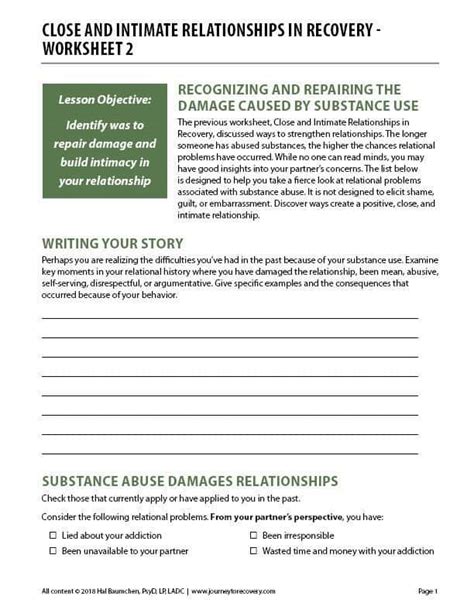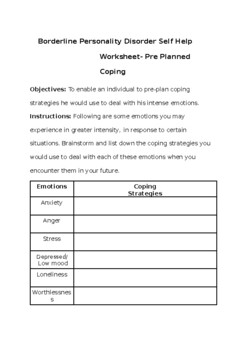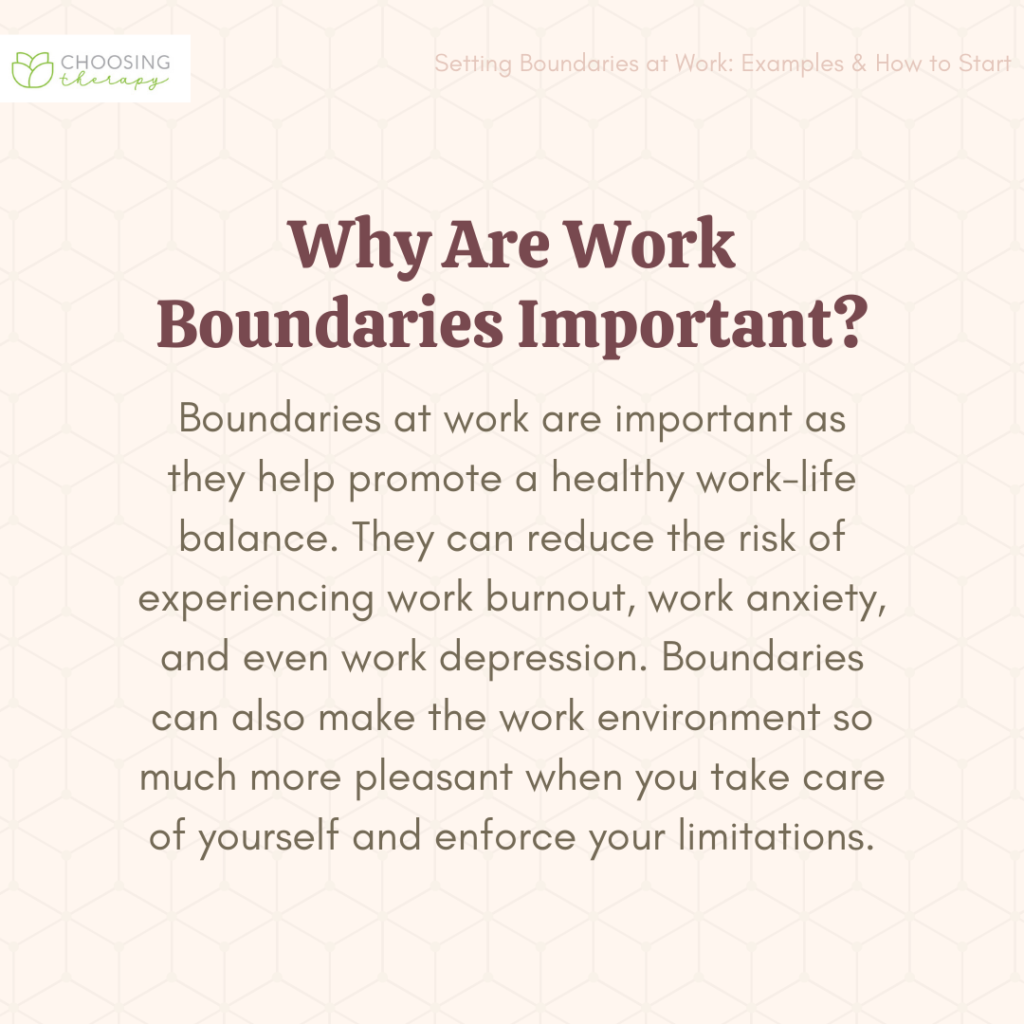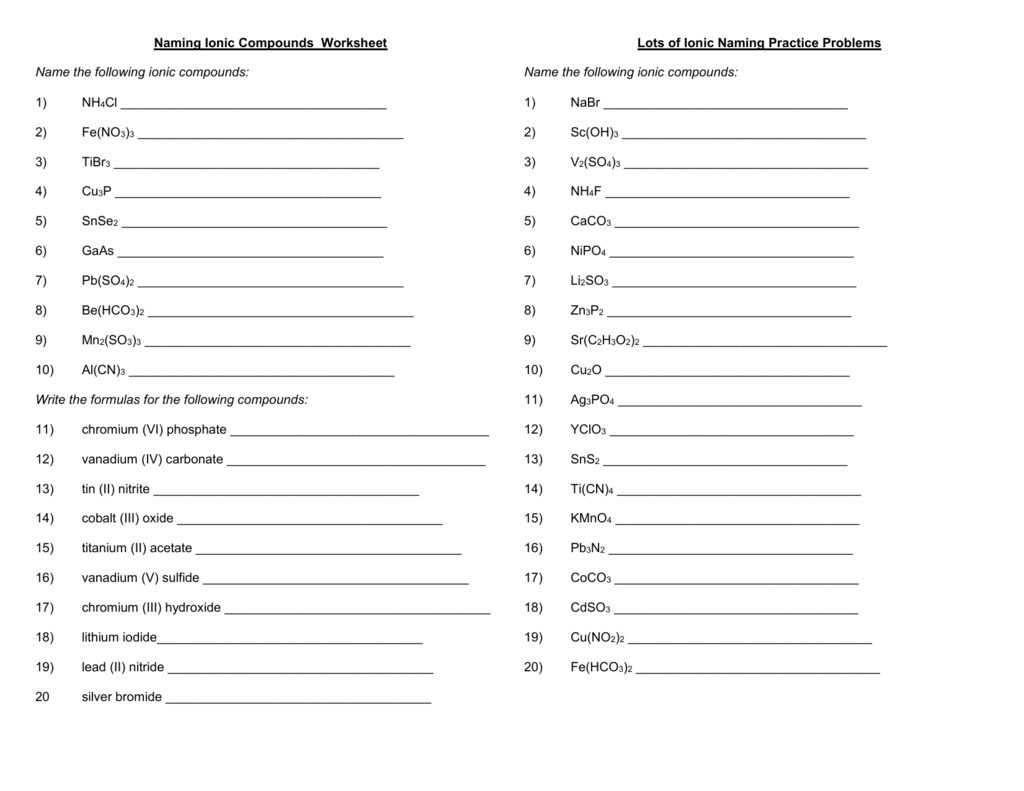5 Free Worksheets for Effective Recovery

Embarking on the journey of recovery, whether it be from a mental health challenge, a traumatic event, or breaking free from addiction, requires support and a structured approach. Worksheets can serve as powerful tools in this process. They provide a way to reflect, plan, manage emotions, and track progress. Here, we offer 5 free worksheets designed to facilitate effective recovery.
Understanding Your Feelings Worksheet


This worksheet centers around the feelings wheel, which helps individuals pinpoint specific emotions they might be experiencing. It’s beneficial because:
- It allows individuals to identify nuanced emotions.
- It can aid in communication with therapists or support groups.
How to Use

Start by selecting the primary emotion you’re feeling from the wheel’s center, then work outward to find more precise descriptions. Here’s what you should do:
- Look at the wheel and choose one primary emotion (e.g., Sadness).
- Move outward to find secondary emotions related to that primary emotion (e.g., Disappointment, Guilt).
- Spend time exploring why you might be feeling these emotions.
✍️ Note: Naming and acknowledging emotions is a crucial step in managing them.
Goal Setting for Recovery Worksheet


Setting goals in recovery is vital for maintaining motivation and seeing progress. This worksheet helps individuals:
- Establish clear, achievable recovery goals.
- Break down large goals into manageable steps.
How to Use

Use this worksheet to:
- Set long-term recovery goals.
- Break those goals into short-term objectives.
- Identify obstacles and devise ways to overcome them.
Gratitude Journal Worksheet


Gratitude can significantly boost one’s mood and perspective on life. This worksheet:
- Encourages individuals to reflect on positive aspects of their life.
- Promotes a mindset shift from negative to positive.
How to Use

Each day, fill out the worksheet by:
- Noting three things you are grateful for.
- Writing a short reflection on why you’re grateful for these things.
🌟 Note: Regular gratitude practice can foster resilience and reduce stress.
Self-Care Plan Worksheet


Self-care is an integral part of recovery. This worksheet helps:
- Identify activities that recharge you physically, emotionally, and mentally.
- Create a structured plan for incorporating self-care into daily life.
How to Use

To fill out this worksheet:
- List self-care activities.
- Schedule these activities into your week.
- Review and adjust your plan regularly.
Coping Strategy Worksheet


Effective coping strategies are essential for dealing with triggers and cravings. This worksheet:
- Helps you to identify current coping mechanisms.
- Assists in developing new, healthier ways to cope.
How to Use

- Reflect on your past coping strategies.
- Analyze their effectiveness.
- Learn and list new strategies to try.
- Develop a plan to implement these strategies during stressful times.
🛠️ Note: Effective coping doesn’t mean avoiding challenges but facing them with better tools.
By integrating these worksheets into your recovery regimen, you'll have structured support for your journey. Recovery is a personal journey, but tools like these can provide direction and reflection. Incorporating them into daily life can encourage accountability and foster a mindset conducive to growth and healing.
Can I share these worksheets with others?

+
Yes, these worksheets are meant to help many individuals in their recovery journey. You can share them with others who might benefit from the same tools.
Are there digital versions of these worksheets?

+
While we provide physical versions, many users choose to make digital versions themselves or adapt the formats for digital use.
How often should I use these worksheets?

+
It depends on your needs. Some worksheets like the Gratitude Journal are meant for daily use, while others like Goal Setting might be used weekly or monthly to review and adjust goals.



